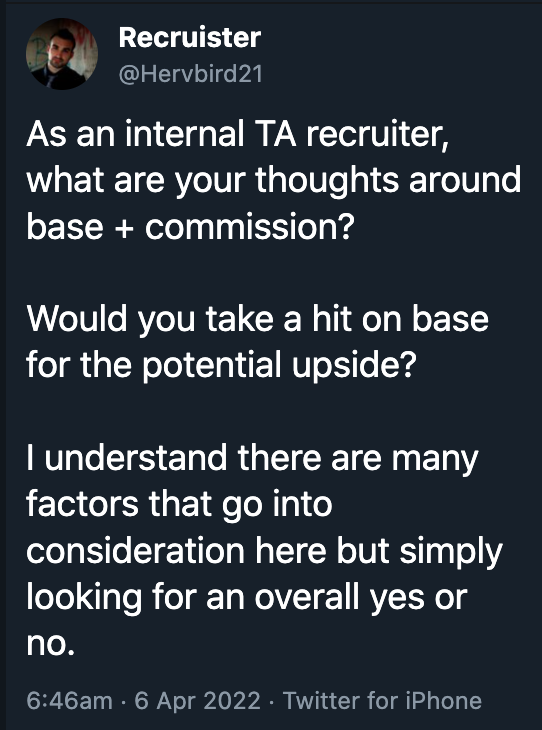I had a conversation the other day with a corporate HR Director and we were talking recruiters, corporate recruiters. My friend had a dilemma, a classic corporate recruiting scenario. The problem is she has recruiters who are doing a decent job, but they won’t get out from behind their desks and get out into the organization and get face-to-face feedback from the hiring managers. But, here is the real reason: the recruiters feel like they are “wasting” the hiring manager’s time.
“So,” she asked, “How do I get them out to build these relationships?”
Great question, but she asked the wrong question (which was partially my answer). Her problem isn’t that her recruiters aren’t building relationships face-to-face with managers. The problem is they feel they are “wasting” someone’s time.
They don’t value or understand the value they are providing to the hiring manager. If they did, it sounds like they wouldn’t have a problem visiting with the hiring managers. It’s a classic leadership failure, solving a symptom instead of solving the actual problem.
I don’t think that this is rare, recruiters feeling like they are wasting hiring manager’s time. It happens constantly at the corporate level. Once you train your recruiters (and hiring managers) on the value the recruiters are providing, you see much less resistance of the recruiters feeling comfortable getting in front of hiring managers to get feedback on candidates, and actually making a decision. This moves your process along much quicker.
What value do recruiters provide? Well, that seems like a really stupid question, but there aren’t stupid questions (just stupid people who ask questions). Here are a few that will help your corporate recruiters understand their real value to hiring managers:
- Corporate recruiters are the talent pipeline for a hiring manager. (or should be!)
- Corporate recruiters can be the conduit for hiring managers to increase or better the talent within their department.
- Corporate recruiters are a partner to the hiring managers in assessing talent.
- Corporate recruiters are a strategist for the hiring managers group succession planning
- Corporate recruiters are your hiring manager’s first line of performance management (setting expectations before someone even comes in the door)
- Corporate recruiters are tacticians of organizational culture.
So, the next time you hear a recruiter tell you “I don’t want to waste their time.” Don’t go off on them and tell them to “just go out there and build the relationship”. Educate them on why they aren’t wasting their time. Then do an assessment for yourself to determine are they adding value or are they just wasting time. All recruiters are not created equal and some waste time, and it’s your job as a leader to find ones to add value.
A critical component of all of this is building an expectation of your hiring managers of what they should expect from your recruiters. They should expect value. They should expect a recruiter who is a pro, and who is going to help them maneuver the organizational landscape and politics of hiring. They should expect a recruiter is going to deliver to them better talent than they already have. They should expect a partner, someone who is looking out for the best interest of the hiring managers department.
Ultimately, what they should expect is someone who won’t waste their time!


